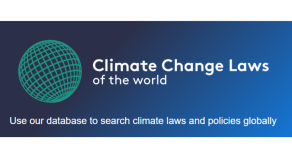Environment
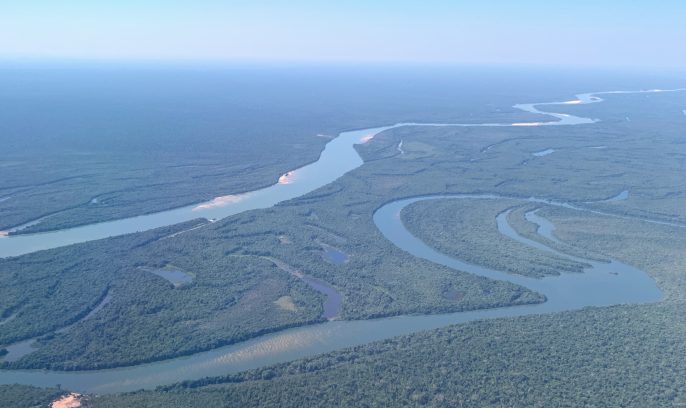
The Environment Program seeks to promote and protect environmental and other human rights through the representation of civil society organizations (CSOs), environmental and land defenders, Special Rapporteurs at the United Nations, the UN Environment Programme, and other entities that are advocating for these rights at the local, regional, and international levels.
Areas of focus for the Program include human rights and the environment, including the right to a healthy environment, the climate emergency, biodiversity loss and conservation, toxic pollution, water source and river protection, and protection of environmental and land defenders. The Program works to promote the rights of Indigenous peoples and other communities through projects that seek to build legal capacity and knowledge about international norms and standards that govern their rights.
The Program’s support for Special Rapporteurs of the U.N. Human Rights Council furthers their mandates in areas such as human rights and the environment, children’s environmental rights, and toxics and human rights.
The Program provides legal assistance to international organizations that promote global environmental rights, conducting multijurisdictional research and analysis of complex legal issues to ensure protection of the fundamental principles of environmental law.
Clients and Partner Organizations
New Projects
Securing the Human Right to a Healthy Environment
Ten years of work at the international level culminated in July 2022 with the UN General Assembly’s historic passage of a resolution recognizing the right to a clean, healthy and sustainable environment....
Read moreSecuring the Human Right to a Healthy Environment
Over 10 years, the Vance Center, along with partner law firms including Clifford Chance, White & Case, and other firms, supported two successive United Nations Special Rapporteurs on Human Rights and the Environment, Prof. John Knox and Dr. David Boyd, in their efforts to secure the recognition of the right to a healthy environment. This effort culminated in July 2022 with the UN General Assembly’s historic passage of a resolution recognizing the right to a clean, healthy and sustainable environment. Our multi-year research projects and global mapping established that 155 UN Member States already recognize the right to a healthy environment in their constitutions, laws, or jurisprudence, and became a cornerstone in the successful advocacy campaign for the right. With recognition of the right, potential positive outcomes include stronger environmental laws and policies, government and corporate accountability, promotion of environmental justice, and more rigorous enforcement of the right in court decisions.
Amicus Briefs Advancing Environmental and Human Rights in International Climate Cases
In 2023, the Vance Center submitted amicus briefs on behalf of various Special Rapporteurs in two cases with the potential to impact future legal frameworks and action to address the climate emergency, as courts play an increasingly important role in climate governance....
Read moreAmicus Briefs Advancing Environmental and Human Rights in International Climate Cases
In 2023, the Vance Center submitted amicus briefs on behalf of various Special Rapporteurs in two cases with the potential to impact future legal frameworks and action to address the climate emergency, as courts play an increasingly important role in climate governance.
In a submission to the International Tribunal of the Law of the Sea (ITLOS), the Vance Center and Milbank discussed the climate change-related obligations of States under the UN Convention on the Law of the Sea (UNCLOS). UNCLOS is a comprehensive legal framework that regulates all ocean space, uses, and resources. In Case No. 31, the Commission of Small Island States requested ITLOS to clarify, in an advisory opinion, the specific responsibilities of UNCLOS States parties to prevent, reduce and control pollution of the world’s oceans from climate change impacts. The Vance Center’s brief argues that greenhouse gas emissions pollute the marine environment, leading to violations of protected rights. The submission also outlines how UNCLOS should be interpreted and applied alongside international human rights law and international environmental law.
In a proceeding before the Inter-American Court of Human Rights (IACtHR), two States, Chile and Colombia, are seeking an advisory opinion outlining the obligations that States owe in relation to the climate emergency under the American Convention on Human Rights. The Vance Center and Milbank submitted a brief setting out a range of ways in which the climate emergency threatens the human rights of all people living in the Americas, including rights to life, health, food, and self-determination; the right to a healthy environment; and the rights of Indigenous Peoples. Based on principles at the intersection of human rights and international environmental law, the brief identifies State obligations to phase out fossil fuels, increase renewable energy production, and compensate communities for loss and damage.
Building Legal Capacity for Women Land Defenders and Frontline Communities
Through a series of ongoing projects, the Vance Center is helping the Women’s Earth and Climate Action Network (WECAN) in its efforts to guide women land defenders and frontline defenders on using the Escazú Agreement....
Read moreBuilding Legal Capacity for Women Land Defenders and Frontline Communities
Through a series of ongoing projects, the Vance Center is helping the Women’s Earth and Climate Action Network (WECAN) in its efforts to guide women land defenders and frontline defenders on using the Escazú Agreement, a new environmental treaty in Latin America, to protect their communities and territories from violence and harassment and ensure they are able to assert their environmental rights. The projects include preparing country reports analyzing compliance with the agreement, organizing workshops to discuss the agreement, and research and preparation of reports on Free, Prior, and Informed Consent (FPIC) to inform advocacy and training efforts.
The Vance Center is preparing toolkits that identify defenders’ rights under domestic laws and jurisprudence and provide practical information that can be used by individuals and groups under threat.
New Projects
Securing the Human Right to a Healthy Environment
Ten years of work at the international level culminated in July 2022 with the UN General Assembly’s historic passage of a resolution recognizing the right to a clean, healthy and sustainable environment....
Read moreSecuring the Human Right to a Healthy Environment
Over 10 years, the Vance Center, along with partner law firms including Clifford Chance, White & Case, and other firms, supported two successive United Nations Special Rapporteurs on Human Rights and the Environment, Prof. John Knox and Dr. David Boyd, in their efforts to secure the recognition of the right to a healthy environment. This effort culminated in July 2022 with the UN General Assembly’s historic passage of a resolution recognizing the right to a clean, healthy and sustainable environment. Our multi-year research projects and global mapping established that 155 UN Member States already recognize the right to a healthy environment in their constitutions, laws, or jurisprudence, and became a cornerstone in the successful advocacy campaign for the right. With recognition of the right, potential positive outcomes include stronger environmental laws and policies, government and corporate accountability, promotion of environmental justice, and more rigorous enforcement of the right in court decisions.
Amicus Briefs Advancing Environmental and Human Rights in International Climate Cases
In 2023, the Vance Center submitted amicus briefs on behalf of various Special Rapporteurs in two cases with the potential to impact future legal frameworks and action to address the climate emergency, as courts play an increasingly important role in climate governance....
Read moreAmicus Briefs Advancing Environmental and Human Rights in International Climate Cases
In 2023, the Vance Center submitted amicus briefs on behalf of various Special Rapporteurs in two cases with the potential to impact future legal frameworks and action to address the climate emergency, as courts play an increasingly important role in climate governance.
In a submission to the International Tribunal of the Law of the Sea (ITLOS), the Vance Center and Milbank discussed the climate change-related obligations of States under the UN Convention on the Law of the Sea (UNCLOS). UNCLOS is a comprehensive legal framework that regulates all ocean space, uses, and resources. In Case No. 31, the Commission of Small Island States requested ITLOS to clarify, in an advisory opinion, the specific responsibilities of UNCLOS States parties to prevent, reduce and control pollution of the world’s oceans from climate change impacts. The Vance Center’s brief argues that greenhouse gas emissions pollute the marine environment, leading to violations of protected rights. The submission also outlines how UNCLOS should be interpreted and applied alongside international human rights law and international environmental law.
In a proceeding before the Inter-American Court of Human Rights (IACtHR), two States, Chile and Colombia, are seeking an advisory opinion outlining the obligations that States owe in relation to the climate emergency under the American Convention on Human Rights. The Vance Center and Milbank submitted a brief setting out a range of ways in which the climate emergency threatens the human rights of all people living in the Americas, including rights to life, health, food, and self-determination; the right to a healthy environment; and the rights of Indigenous Peoples. Based on principles at the intersection of human rights and international environmental law, the brief identifies State obligations to phase out fossil fuels, increase renewable energy production, and compensate communities for loss and damage.
Building Legal Capacity for Women Land Defenders and Frontline Communities
Through a series of ongoing projects, the Vance Center is helping the Women’s Earth and Climate Action Network (WECAN) in its efforts to guide women land defenders and frontline defenders on using the Escazú Agreement....
Read moreBuilding Legal Capacity for Women Land Defenders and Frontline Communities
Through a series of ongoing projects, the Vance Center is helping the Women’s Earth and Climate Action Network (WECAN) in its efforts to guide women land defenders and frontline defenders on using the Escazú Agreement, a new environmental treaty in Latin America, to protect their communities and territories from violence and harassment and ensure they are able to assert their environmental rights. The projects include preparing country reports analyzing compliance with the agreement, organizing workshops to discuss the agreement, and research and preparation of reports on Free, Prior, and Informed Consent (FPIC) to inform advocacy and training efforts.
The Vance Center is preparing toolkits that identify defenders’ rights under domestic laws and jurisprudence and provide practical information that can be used by individuals and groups under threat.
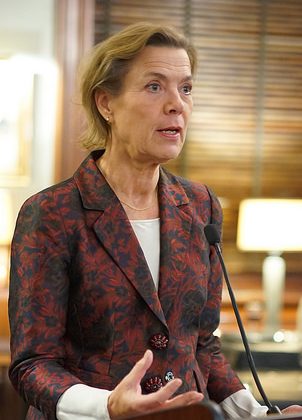
The contribution of the Cyrus R. Vance Center and its lawyers has been of crucial importance for my work as the United Nations International Law Commission’s Special Rapporteur on the topic ‘Protection of the environment in relation to armed conflicts’. By assisting me in identifying case law relevant to my second and third report, the Center has enabled considerable progress to be made on this topic. The contributions were excellent in every respect and it is a privilege to have received this assistance. In addition, it has been inspiring to work with such an engaged group of excellent lawyers in the cause of global justice.
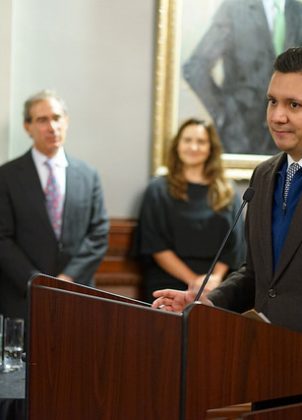
The Vance Center has become a great partner in our Water Security strategy in Latin America and the Caribbean. They have helped us to develop strong relationships with local counsel in regions where they are pioneers promoting a culture of pro bono legal services. The Vance Center team assumes real ownership in all projects as a member in our conservation efforts, but also promotes methods to share legal knowledge and information with other nonprofits and individuals in order to achieve greater impacts in the region.
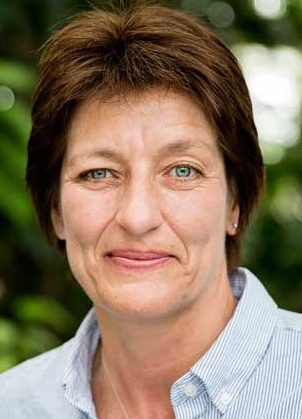
The support of the Vance Center came at a critical time for the Prey Lang Community Network struggling to protect their ancestral lands from illegal logging. The community now can be appropriately involved in conservation and management efforts and receive on-call legal assistance to protect their members in case of persecution and incrimination.


